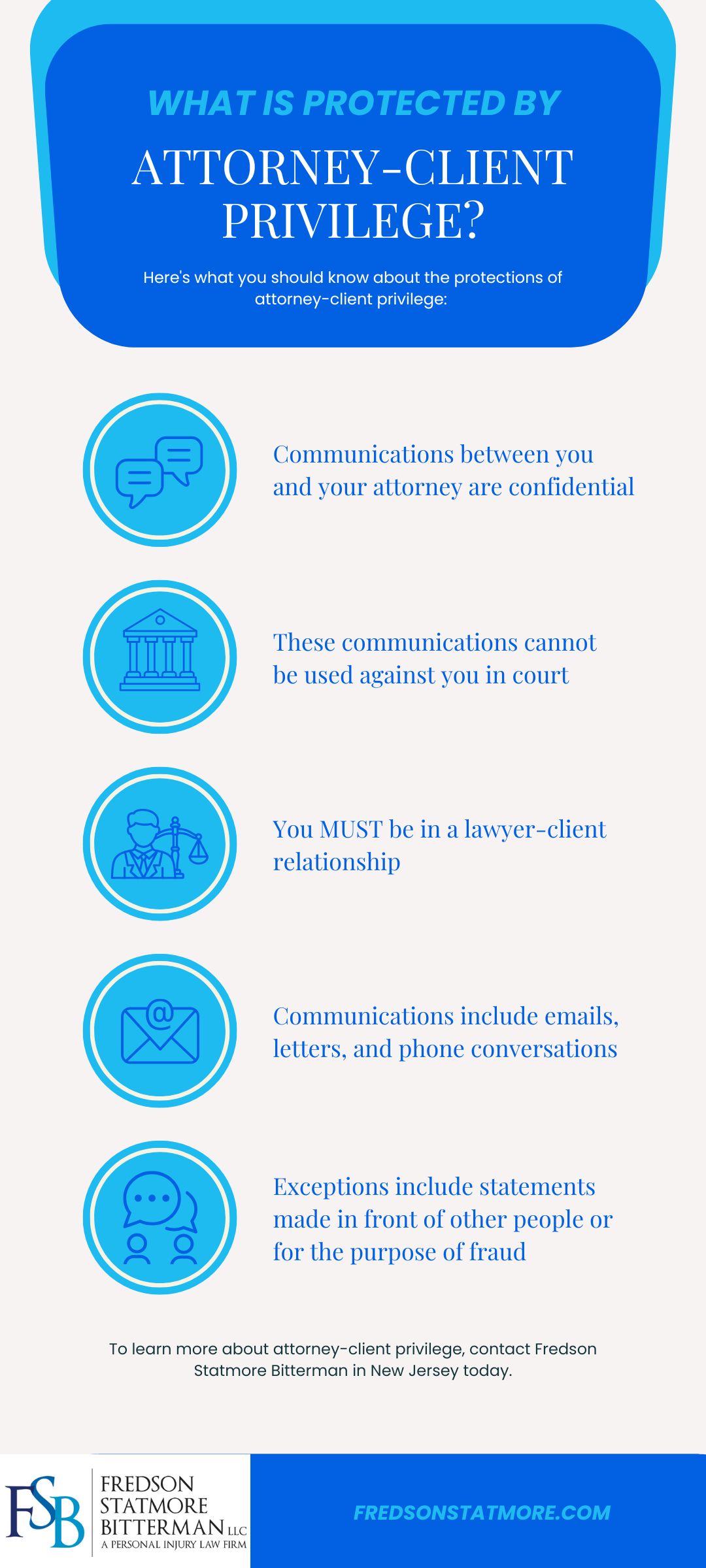4 Things to Know About Attorney-Client Privilege

When you meet with a personal injury lawyer to discuss your personal injury case, what you say is confidential. This is called attorney-client privilege. It is important for clients to understand what this means and how it works, as there are many misconceptions about it. In this blog post from Fredson Statmore Bitterman Personal Injury Attorneys, we will discuss four things that clients should know about attorney-client privilege: what it is, how it works, the types of information that are protected, and some exceptions.

What Is Attorney-Client Privilege?
Attorney-client privilege is a legal principle that protects communications between clients and their attorneys. This means that, in general, anything you tell your attorney is confidential and cannot be used against you in court. The purpose of this rule is to encourage open and honest communication between attorneys and their clients so that the attorney can provide the best possible representation.

How Does Attorney-Client Privilege Work?
In order for attorney-client privilege to apply, there must be a lawyer-client relationship. This means that the communication must be between a client and his or her attorney, and not just any lawyer. The communication must also be made in confidence, which usually means that it is not made in front of other people.

What Types of Information Are Protected?
Generally, any type of communication between a client and attorney is protected by the attorney-client privilege. This includes written communications, such as emails and letters, as well as oral communications, such as conversations in person or over the phone. However, there are some exceptions to this rule.

What Are Some Exceptions to Attorney-Client Privilege?
There are a few circumstances in which attorney-client privilege does not apply. One exception is if the communication is made in front of other people. Another exception is if the communication is made for the purpose of committing a crime or fraud. Finally, attorney-client privilege may be waived if the client chooses to disclose the information to a third party.
We hope this answers the questions you may have regarding attorney-client privilege. If you have any further questions or would like to discuss your personal injury case with an attorney, please contact our personal injury law office in Bloomfield today.


